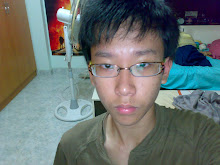http://www.straitstimes.com/Gen+Y/Story/STIStory_207376.html?sunwMethod=GET
Dear Parents, Your child was found loitering
Growing number of youths found by police in public places past 11pm and reported to parents
By Alex Liam
ST PHOTO ILLUSTRATION: MUGILAN RAJASEGERAN
SIXTEEN-year-old Wu Jin Lian likes to hang out late at night. Void decks near her home in Tampines are her usual haunts and she chats with friends there into the wee hours.
The problem? Teens like her are easy prey for trouble-makers - either in falling victim to a crime or being roped in to commit one.
Prompted by concerns such as these, police have written to Jin Lian's parents informing them of her night-owl antics.
The letter to Mum and Dad from the cops is the result of a police initiative launched two years ago in which youngsters under 17 who are found loitering in public places after 11pm by patrolling officers can be reported to their parents.
It raised a fuss at the time, with some people worrying that police were assuming parents' responsibilities, and that it might make teens overly mistrustful of the police.
In the case of Jin Lian. her parents have received two such letters.
Police initiative aimed at preventing crime
MOST police checks on loitering youngsters are carried out in public areas that are popular teen hang-outs such as void decks, playgrounds and parks.These checks are carried out from 11pm to dawn. Not every group or teenager is approached.
... more
It doesn't seem to have made her any more mistrustful of the police, though. If anything, she seems indifferent, telling GenY: 'It was just a simple matter of taking down my particulars and after that, they let me go. I still continue to stay out late.'
Two years after the scheme kicked off, the teenager is among a growing number of youngsters being flagged this way.
Last year, the police sent out about 1,200 warning letters to parents about their teens loitering late at night. This is double the 675 notes sent out in 2006 when the scheme was introduced.
But it may not yet be cause for alarm. Police say the reason for the increase is not necessarily more youths staying out late.
The big jump might have come from greater vigilance by the police, said Assistant Superintendent Lim Tung Li, a media relations officer in the Singapore Police Force.
Exact figures were not available but repeat offenders are apparently rare.
Indeed, the patrols and warning letters seemed to pay off initially: Youth arrests - of kids aged seven to 19 - fell by 34 per cent in the first six months of last year.
But perhaps in the way die-hard late-nighters like Jin Lian shrug off the letters, the effect wore off later in the year, as annual figures hardly showed any dip. Youth arrests fell just 1 per cent for the whole of 2007.
Jin Lian is not typical of late-night loitering youngsters, though, as three out of four who are stopped are males. And while the scheme hasn't jolted her, other teens and parents are still giving it the thumbs-up.
Most of the 30 teens GenY spoke to said that it not only prevents youth from getting into trouble but it also keeps the streets safe for those who want to have some good clean fun. They agreed that patrolling keeps youths in check and pre-empts problems.
Student Alex Lee, 16, said: 'If you are insistent on not telling your parents that you're going out, it pretty much means you're doing something inappropriate.'
Student Ian Ho, 16, echoed that, saying: 'The curfew rule doesn't quite bother me, as long as my parents know where I am.'
As for parents, Mr Simon Lim, 49, a senior property officer, said that his 15-year-old son Jeremy is more willing to return home before 11pm since the ruling was implemented.
'It's a great way to ensure children keep track of time when they are out with friends,' he said.
Another who likes the scheme is administrative assistant Lau Siew Yee, 48. She said that she has a busy schedule which doesn't allow her to keep close tabs on her 16-year-old daughter Jasmine.
Ms Lau revealed that she is often unaware of her daughter's whereabouts and said she is all for late-night checks, adding: 'I hope that my daughter will become more responsible and call me whenever she is staying out late.'
How It Began
Harking back to when the scheme started, ASP Lim pointed out that in 2006, youths accounted for 22 per cent of overall arrests.
This was 'worrisome' as it was more than the proportion of youths in the national demography, he said. Youths make up 16 per cent of the population currently. Last year, they accounted for 21 per cent of arrests.
The police said the response of youths when approached by them varies, but most try to explain why they are out and are by and large cooperative.
Still, not all youths like the late-night checks, with some telling GenY they felt that the police were attempting to control them.
'I believe I do not pose a danger to others or that my being out late is a danger to myself,' said student Zuo Le Le, 16.
But it is not just being up to no good that is a concern, said Dr Carol Balhetchet, a youth counsellor with Teen Challenge and director of youth services at the Singapore Children's Society.
She is all for the post-11pm checks, saying that students who hang out till 1 or 2am are likely to not get enough sleep and end up failing their exams.
However, she added: 'But there's always a time for work and play - I'm okay with youths staying out a little later on weekends.'
alexliam@sph.com.sg
Thursday, March 6, 2008
Subscribe to:
Post Comments (Atom)

No comments:
Post a Comment